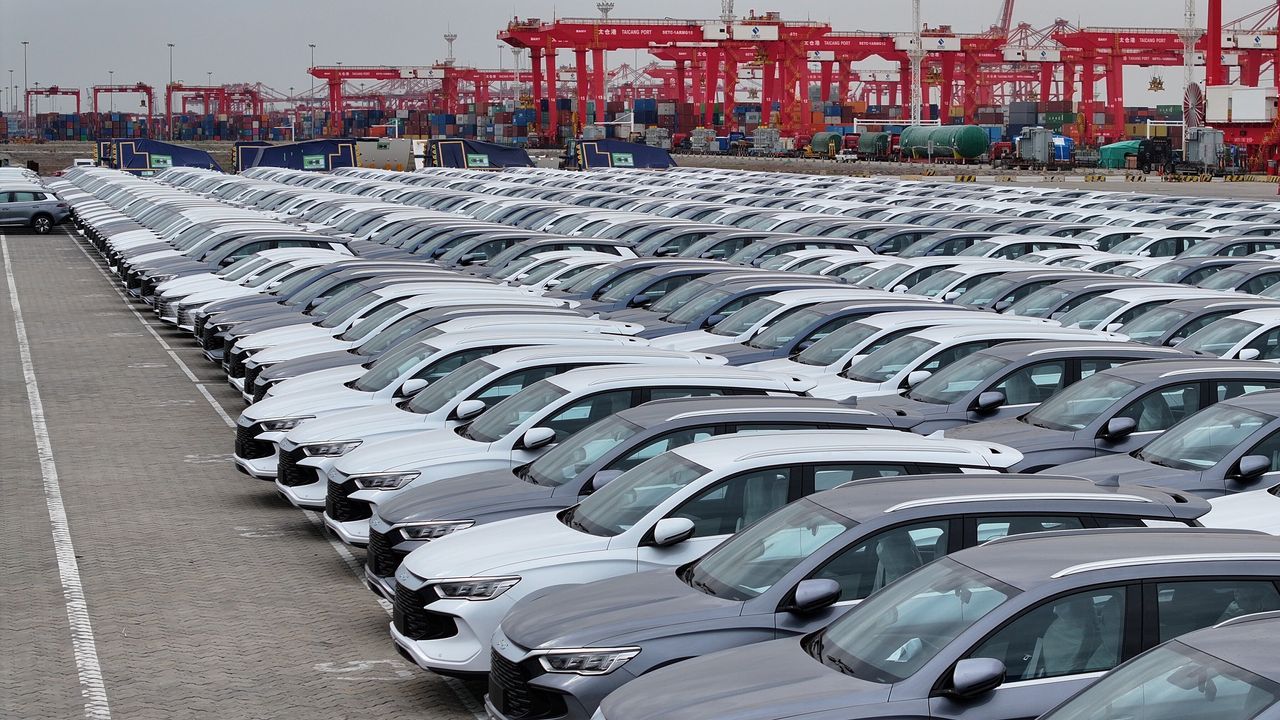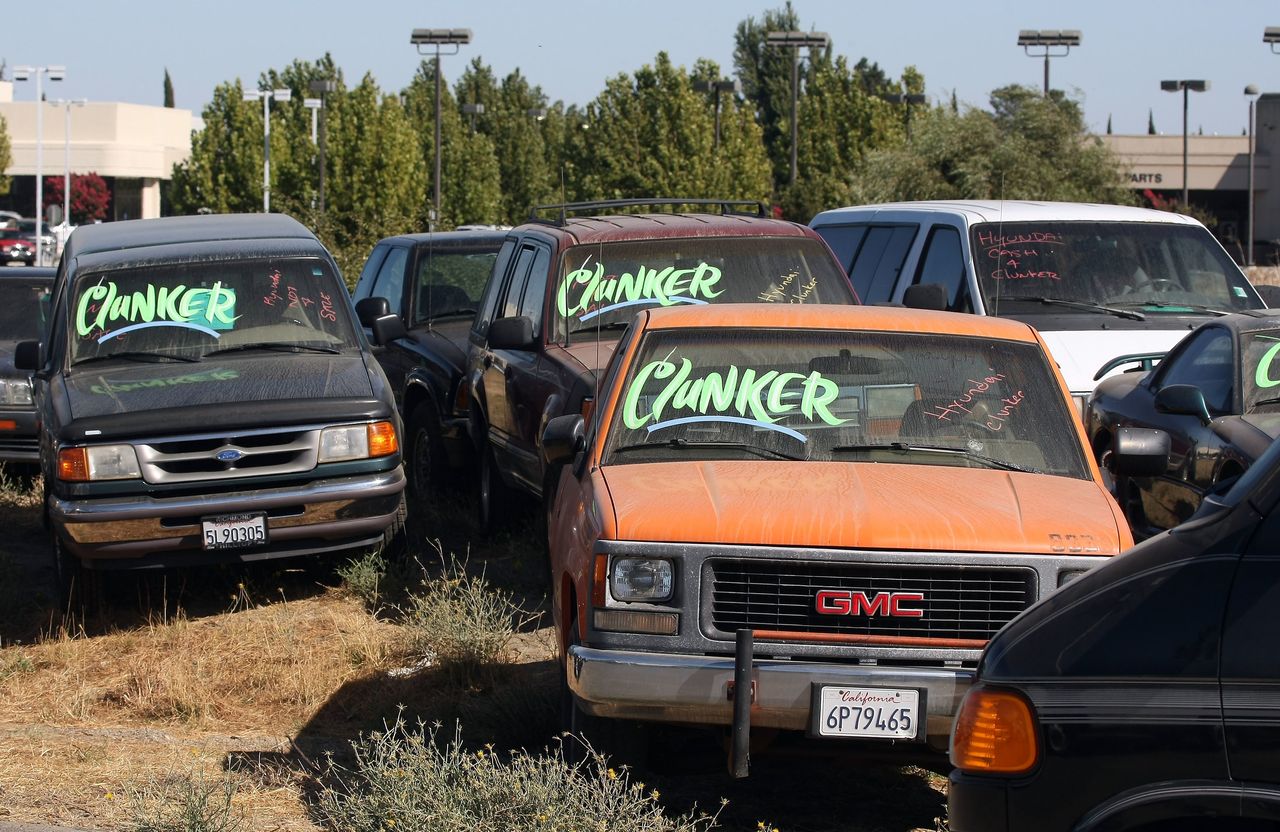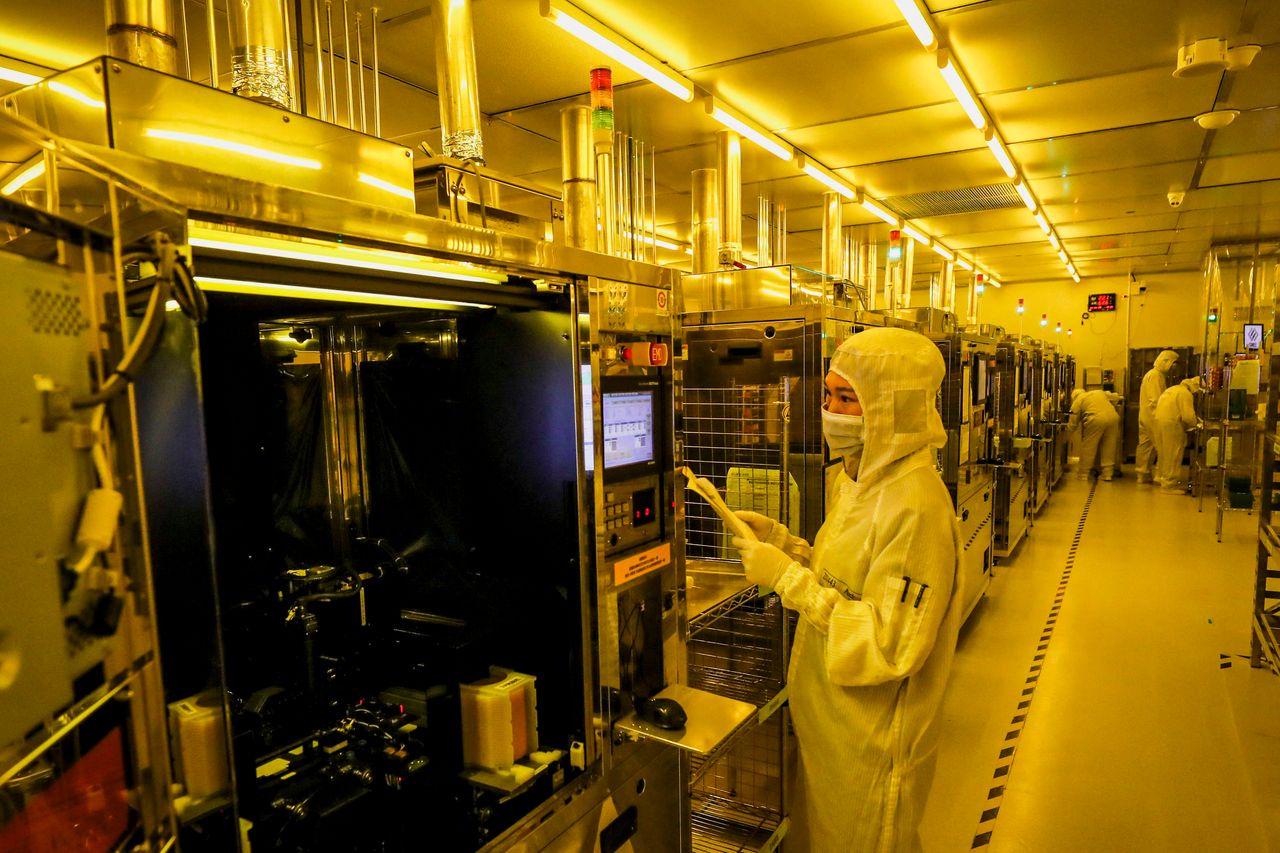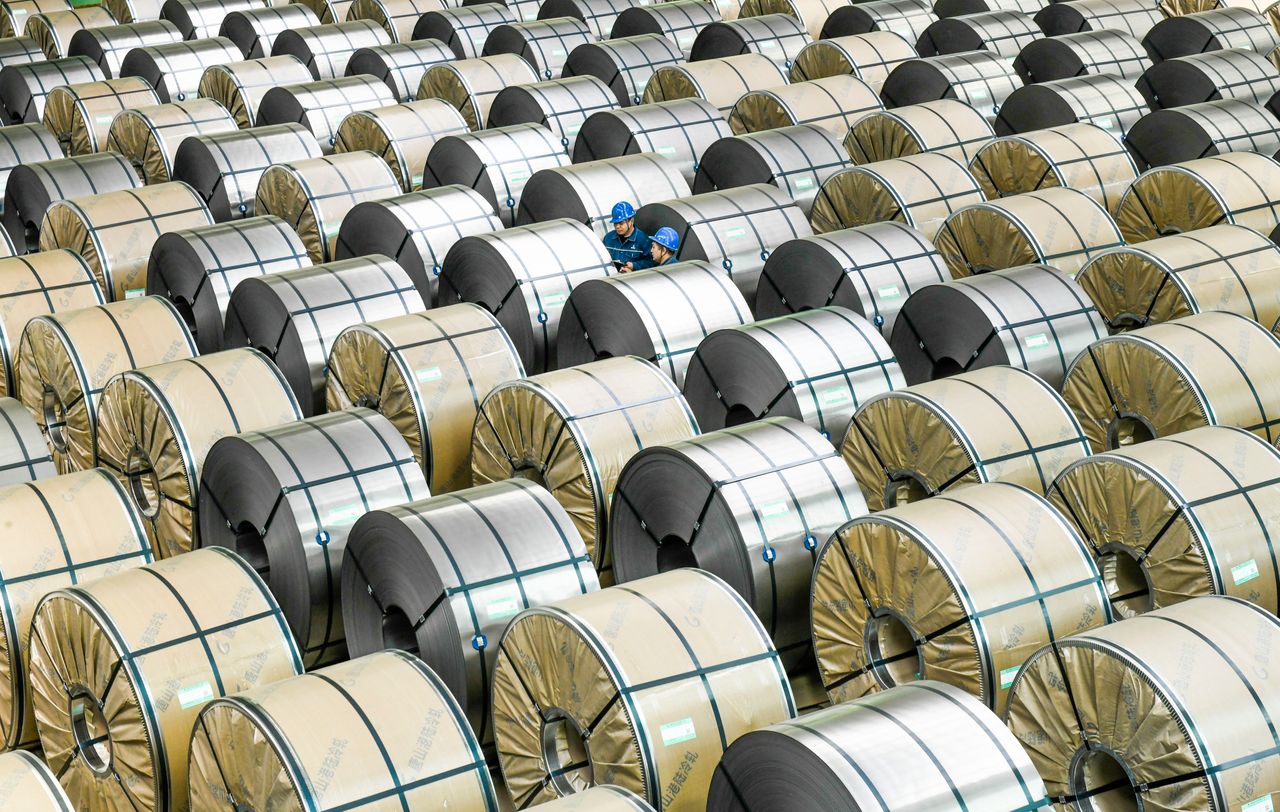America’s Cash for Clunkers is Back—in China

SINGAPORE—In a new push to boost the economy, China’s leaders are resurrecting a policy familiar to many Americans from the 2008-09 financial crisis: cash for clunkers.
Beijing isn’t just dangling financial incentives to trade in old jalopies for new vehicles, though, as the U.S. did. It also wants households to swap out rickety home appliances and factories to get new equipment.
Beijing has billed the trade-in program as a long-awaited stimulus package aimed at lifting consumer spending, although economists are doubtful the effect will be large. They also say the policy is likely to encourage Chinese factories to expand and churn out more goods, potentially aggravating global anxiety over China’s rising exports and dominance of manufacturing.
China’s expanded version of cash for clunkers is “a backdoor bailout for the supply side,” said Rory Green, chief Asia economist at GlobalData TS Lombard in London.
More broadly, the new program falls short of the direct support for consumer spending that China needs, many economists say. Chinese households save too much and spend too little, they say, and Beijing has shown little appetite for the kind of economic overhauls that would shift growth more decisively toward consumption and away from investment.
Tried in the U.S.
In 2009, the U.S. government spent $3 billion on a vehicle-scrappage program that helped consumers trade in older, polluting cars for cleaner new ones. Nicknamed “cash for clunkers,” the initiative was part of a wider effort to inject stimulus into the U.S. economy as it reeled from the financial crisis.
Beijing has experimented with similar policies before, including in its own response to the trauma of 2008-09. More recently, it cut taxes on some car purchases to encourage switching to less gas-hungry vehicles in 2015 and 2017, and in 2022 offered cheap loans to banks to finance industrial upgrades.

Now, officials are reaching for the playbook again to uncork spending as its economy wrestles with a drawn-out property meltdown that is hitting investment and holding back consumption. Beijing has a growth target of around 5% this year.
Details of the latest version of the program have dribbled out over the past six months. A recent government policy paper included targets for recycling old appliances and scrapping cars that imply a larger program than those tried before.
Another difference from earlier rounds: Beijing has said it would help fund the trade-in scheme from central coffers rather than leave it solely to cash-strapped local governments to pony up.
To some analysts, that suggests the program will gain enough traction to give the economy at least some short-term lift. Economists at Goldman Sachs estimate the program could add around 0.6 percentage point to Chinese growth this year, while Pantheon Macroeconomics estimates a boost of around 0.7 percentage point.
Reasons for Caution
Some important details are still fuzzy, including how big the overall program will be. That suggests a reticence among policymakers over scale that is making some economists more cautious.
One risk, economists say, is that consumers embrace the subsidies but at the expense of spending on eating out and other services, muting the overall effect.
Some analyses of the U.S. program suggest the cost of cash for clunkers exceeded its benefit to the economy.
One 2017 paper concluded the $3 billion program actually reduced spending on new vehicles by $5 billion because consumers bought cheaper, more fuel-efficient cars to take advantage of the subsidy and cut spending on more expensive models, though other studies concluded there were environmental benefits.
In China, other wrinkles could limit the plan’s upside.
Grumbles over the low prices on offer for swapping old home appliances for new ones have surfaced in state media, which could dissuade some consumers from switching. The Workers’ Daily newspaper quoted a Beijing resident who was offered 60 yuan, or about $8, to trade in a refrigerator that cost almost $1,400 when he bought it in 2021.
Troubles With Trade-ins
Liu Wei, who drives a Buick in Beijing, said he would like to switch to an electric vehicle because they are cleaner and quieter than gasoline-powered cars. In April, the government in Beijing said motorists trading in an older, polluting car for a new vehicle will be eligible for a subsidy of up to 10,000 yuan, or around $1,380.
“If you can get a license plate, coupled with the replacement subsidy, then many people will be willing to have a new energy vehicle,” he said.
But Liu said there is already a long waiting list in the capital for one of the limited number of EV license plates the authorities issue each year. Though Beijing is issuing thousands more plates for EVs than gasoline cars, it keeps a lid on overall numbers to manage congestion.
Even if the cash-for-clunkers program does boost growth in the short run, most economists expect its effects to be temporary, and say it falls short of the broader demand-side stimulus China’s economy needs.
China’s leaders are wary of putting cash directly into consumers’ pockets via handouts or tax cuts, believing it smacks of Western-style welfarism. Interest rates could be cut further to encourage borrowing, but the central bank is eager to avoid a flight of capital from investors seeking better returns elsewhere.

Beijing has shown little appetite for strengthening the social safety net or taking other actions that might encourage Chinese consumers to save less and spend more.
“I don’t think this targeted stimulus is enough,” said Arthur Budaghyan, chief emerging markets and China strategist at BCA Research. The firm estimates auto sales in China will grow by perhaps 3% or 4% in 2024 with the program in place, compared with 6% last year.
New Productive Forces Unleashed
Efforts to lift consumption pale in comparison to Chinese officials’ efforts to drive investment, long their preferred avenue for raising growth.
Instead of shoveling money at real estate, today they are channeling investment into manufacturing and especially into what the Communist Party calls “new productive forces”—high-tech industries such as renewable energy gear, semiconductors and EVs.
Governments around the world are complaining that by doubling down on manufacturing, China’s weakness at home is pushing its firms to flood global markets with cheap goods, ratcheting up the pressure on their homegrown competitors, who they worry will struggle to match China’s low prices.

By boosting domestic spending, China’s trade-in program could help soak up some of those cheap goods at home, at least in autos and home appliances.
But by encouraging factories to upgrade their equipment to newer, more productive and energy-efficient gear as part of its broader take on the cash-for-clunkers idea, the trade-in program also has the potential to boost China’s industrial capacity and make the problem worse, some economists say.
Thomas Gatley, China strategist at Gavekal Dragonomics, said that some years ago the authorities in Tangshan, a city in a steel-producing region near Beijing, encouraged firms to switch from heavily polluting equipment to cleaner machinery. The companies put in the new machinery, but kept operating the older gear as well to squeeze out as much production as they could, he said.
By giving firms subsidies to upgrade, “all that does is create more capacity, more supply,” he said during a recent webinar.
Write to Jason Douglas at [email protected]
